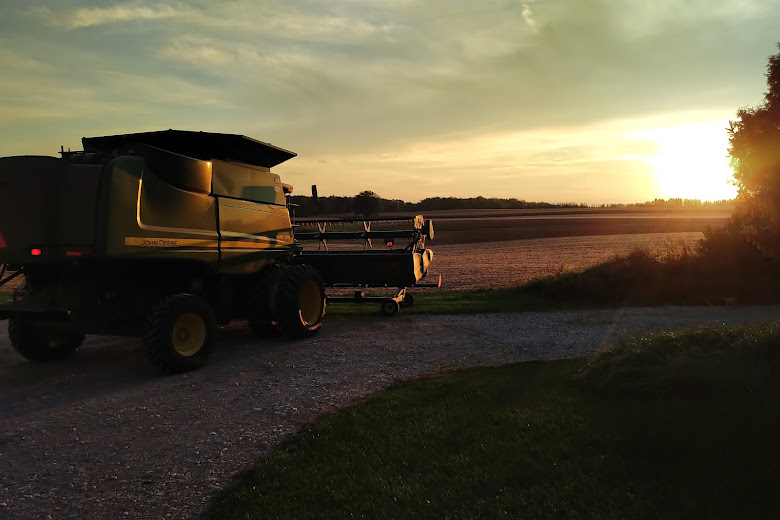This was an estate case involving a horse farm. The farm had been owned jointly by Mr. and Mrs. von Hopffgarten before the husband died in 2006. In 2011, Mrs. von Hopffgarten died - her will said she left the farm to a Ms. Rommel. However, the von Hopffgartens had for a long time taken a man named Jesse Sabey under their wings and intended to leave the farm to him. They both executed codicils to their wills (changing the beneficiary from Ms. Rommel to Mr. Sabey), but the codicils were invalid under the Wills Act, R.S.B.C. 1996, c. 489 because they were witnessed by only one person.
Sabey commenced an action the B.C. Supreme Court to claim ownership of the farm based on proprietary estoppel - statements made to him by the von Hopffgartens. Alternatively, he made claims based on unjust enrichment and trust. He alleged that he had worked extensively on the farm, with less remuneration than other workers, with the promise that he would someday take over the farm. Interestingly, Sabey was not aware of the codicils that the von Hopffgartens had attempted to make (and, therefore, the codicils couldn't assist in making the case of proprietary estoppel).
The Court accepted Mr. Sabey's evidence; no one challenged his credibility about the statements made to him. The Court concluded that he had made out the case for proprietary estoppel and that "equity must be satisfied" by granting Mr. Sabey the farm.
Read the decision at: Sabey v. Beardsley.
Combine at dusk

Saturday, August 31, 2013
Equity ensures farm goes to intended beneficiary after codicil failed
Wednesday, August 28, 2013
Shippers complain: Does Enbridge have enough insurance?
On May 9, 2011, Enbridge Pipelines (NW) Inc. discovered an oil release near Willowlake Creek, NWT from its Norman Wells Pipeline. Between 750 and 1,500 barrels (between 119,243 L and 238,485 L) of oil were released. Enbridge charged repair and clean up costs arising from the spill to its shippers on the pipeline. One of the shippers, ISH, contacted Enbridge to enquire why insurance coverage on the pipeline was not used to cover the spill costs. Enbridge did not provide a response.
ISH has now brought a complaint before the National Energy Board (NEB) asking the NEB to compel Enbridge to explain why the spill costs were not paid by insurance and to determine whether Enbridge failed to comply with certain sections of the NEB Act. In its books, Enbridge designated most of the spill costs as standard costs of operating the pipeline.
ISH has noted that, at the time of the Norman Wells clean-up, Enbridge may have already exhausted its insurance coverage in dealing with the Line 6B rupture in Marshall, MI. ISH says that it is "concerned that ENW's insurance coverage, under the comprehensive insurance coverage, had been exhausted at the time of the Pipeline leak, and that ISH, and the other shippers on the Pipeline, were accordingly denied the benefits of insurance coverage." ISH raises questions about the cross-subsidization of pipelines and its effect on shippers: "exhaustion of insurance by ENW's affiliated entities should not entitle collection of Spill Costs from its shippers, while such Spill Costs would have otherwise been covered by insurance."
Read the complaint at: Letter from ISH to NEB re Enbridge Pipelines (NW) Inc. 2011 Willowlake Pipeline Spill Operating Costs Complaint.
ISH has now brought a complaint before the National Energy Board (NEB) asking the NEB to compel Enbridge to explain why the spill costs were not paid by insurance and to determine whether Enbridge failed to comply with certain sections of the NEB Act. In its books, Enbridge designated most of the spill costs as standard costs of operating the pipeline.
ISH has noted that, at the time of the Norman Wells clean-up, Enbridge may have already exhausted its insurance coverage in dealing with the Line 6B rupture in Marshall, MI. ISH says that it is "concerned that ENW's insurance coverage, under the comprehensive insurance coverage, had been exhausted at the time of the Pipeline leak, and that ISH, and the other shippers on the Pipeline, were accordingly denied the benefits of insurance coverage." ISH raises questions about the cross-subsidization of pipelines and its effect on shippers: "exhaustion of insurance by ENW's affiliated entities should not entitle collection of Spill Costs from its shippers, while such Spill Costs would have otherwise been covered by insurance."
Read the complaint at: Letter from ISH to NEB re Enbridge Pipelines (NW) Inc. 2011 Willowlake Pipeline Spill Operating Costs Complaint.
Subscribe to:
Posts (Atom)